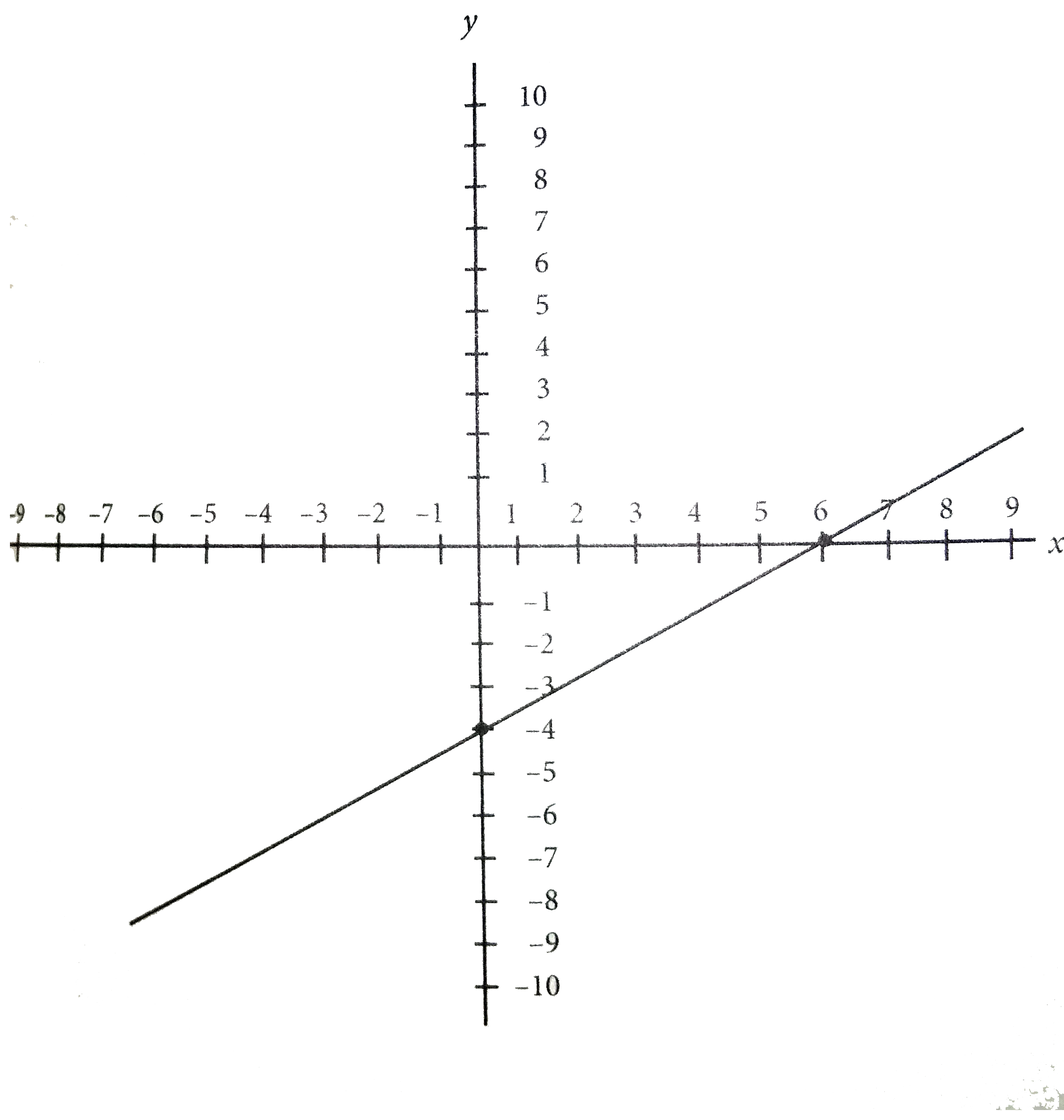A system of rotating crops with legume or grass pasture to improve soil structure and fertility is called
contour farming
strip farming
shifting agriculture
ley farming
The correct Answer is:D
Ley farming is a system of rotating crops with legumes or grass pasture in order to improve soil structure and fertility and also to disrupt pea=st and disease life cycles
Similar Questions
Knowledge Check

The graph y=f(x), shown above models the performance of a certain crop, where x is the nutrients subtracted or added to the soil and y is the gain or loss of pieces of fruit added to the total harvest. A more powerful fertilizer that is used causes the graph y=f(x) to be reflected over the line y=x. which of the following best describes the behaviour of the crop with the new fertilizer?AFor every three nutrients added to the soil, the crop loses two additional fruits for the total harvest.BFor every two nutrients added to the soil , the crop loses two additional fruits for the total harvest.CFor every three nutrients added to the soil, the crop adds two additional fruits to the total harvest.DFor every two nutrients added to the soil, the crop adds three additional fruits to the total harvest.
Which of the following statement/s is/are and example of genetic engineering?
I. Inserting a gene for human insulin production into bacteria.
II. Selective breeding to produce cattle with high milk yields.
III. Using methods like crop rotation with leguminous plants to increase the fertility of the soil.
IV. Vegetative propagation and grafting are practised to ensure higher yield.
View SolutionProtein found in a biological system with a unique three-dimensional structure and biological activity is called a native protein. When a protein in its native form, is subjected to a physical change like change in temperature or a chemical change like, change in pH, denaturation of protein takes place. Explain the cause.
View SolutionThe material of biological origin, which is used to maintain and improve soil fertility is
(a) Bio pesticide
(b) Bionutrient
(c) Chemical fertilizers
(d) Green manure
View SolutionWithout the rotation of crop by a pulse in between cereals, the farmer observed the increases in natural fertility due to
View SolutionA large number of monomers (simple molecules) combine together to form a larger molecule (macro molecule) called as polymer. Each polymer is made up of a repeating structural unit. A polymer is said to be homopolymer if the structural units is derived from one type of monomer molecules. If the repeating structural unit of a polymer is derived from more than one different types of monomers, the polymer is said to a copolymer. The homopolymers as well as copolymers may be formed by addition or condensation reactions. Alkenes and dienes polymerize by additions (chain growth) mechanism involving carbocations, carbanions or free radical intermediates. Dienes (chloroprene) polymerise by 1, 4 addition mechanism to give cis or trans polymers. Natural rubber is, however, cis-polyisoprene. Natural rubber is quit soft and tacky but these properties can be improved by a process called vulcanization. In contrast, bifunctional monomer molecules undergo condensation or step-growth polymerization. Polymers which can be heated and reshaped as many times as desired are called thermoplastics (polyethene, polystyrene, PVC, teflon etc). while those which can be heated only once to give a particular shape are called thermosetting polymers (bakelite, melmac etc).
Chloroprene is the repeating unit in
View SolutionA large number of monomers (simple molecules) combine together to form a larger molecule (macro molecule) called as polymer. Each polymer is made up of a repeating structural unit. A polymer is said to be homopolymer if the structural units is derived from one type of monomer molecules. If the repeating structural unit of a polymer is derived from more than one different types of monomers, the polymer is said to a copolymer. The homopolymers as well as copolymers may be formed by addition or condensation reactions. Alkenes and dienes polymerize by additions (chain growth) mechanism involving carbocations, carbanions or free radical intermediates. Dienes (chloroprene) polymerise by 1, 4 addition mechanism to give cis or trans polymers. Natural rubber is, however, cis-polyisoprene. Natural rubber is quit soft and tacky but these properties can be improved by a process called vulcanization. In contrast, bifunctional monomer molecules undergo condensation or step-growth polymerization. Polymers which can be heated and reshaped as many times as desired are called thermoplastics (polyethene, polystyrene, PVC, teflon etc). while those which can be heated only once to give a particular shape are called thermosetting polymers (bakelite, melmac etc).
Which is not a macro molecule?
View SolutionA large number of monomers (simple molecules) combine together to form a larger molecule (macro molecule) called as polymer. Each polymer is made up of a repeating structural unit. A polymer is said to be homopolymer if the structural units is derived from one type of monomer molecules. If the repeating structural unit of a polymer is derived from more than one different types of monomers, the polymer is said to a copolymer. The homopolymers as well as copolymers may be formed by addition or condensation reactions. Alkenes and dienes polymerize by additions (chain growth) mechanism involving carbocations, carbanions or free radical intermediates. Dienes (chloroprene) polymerise by 1, 4 addition mechanism to give cis or trans polymers. Natural rubber is, however, cis-polyisoprene. Natural rubber is quit soft and tacky but these properties can be improved by a process called vulcanization. In contrast, bifunctional monomer molecules undergo condensation or step-growth polymerization. Polymers which can be heated and reshaped as many times as desired are called thermoplastics (polyethene, polystyrene, PVC, teflon etc). while those which can be heated only once to give a particular shape are called thermosetting polymers (bakelite, melmac etc).
Which of the following sets contain only copolymers?
View Solution
